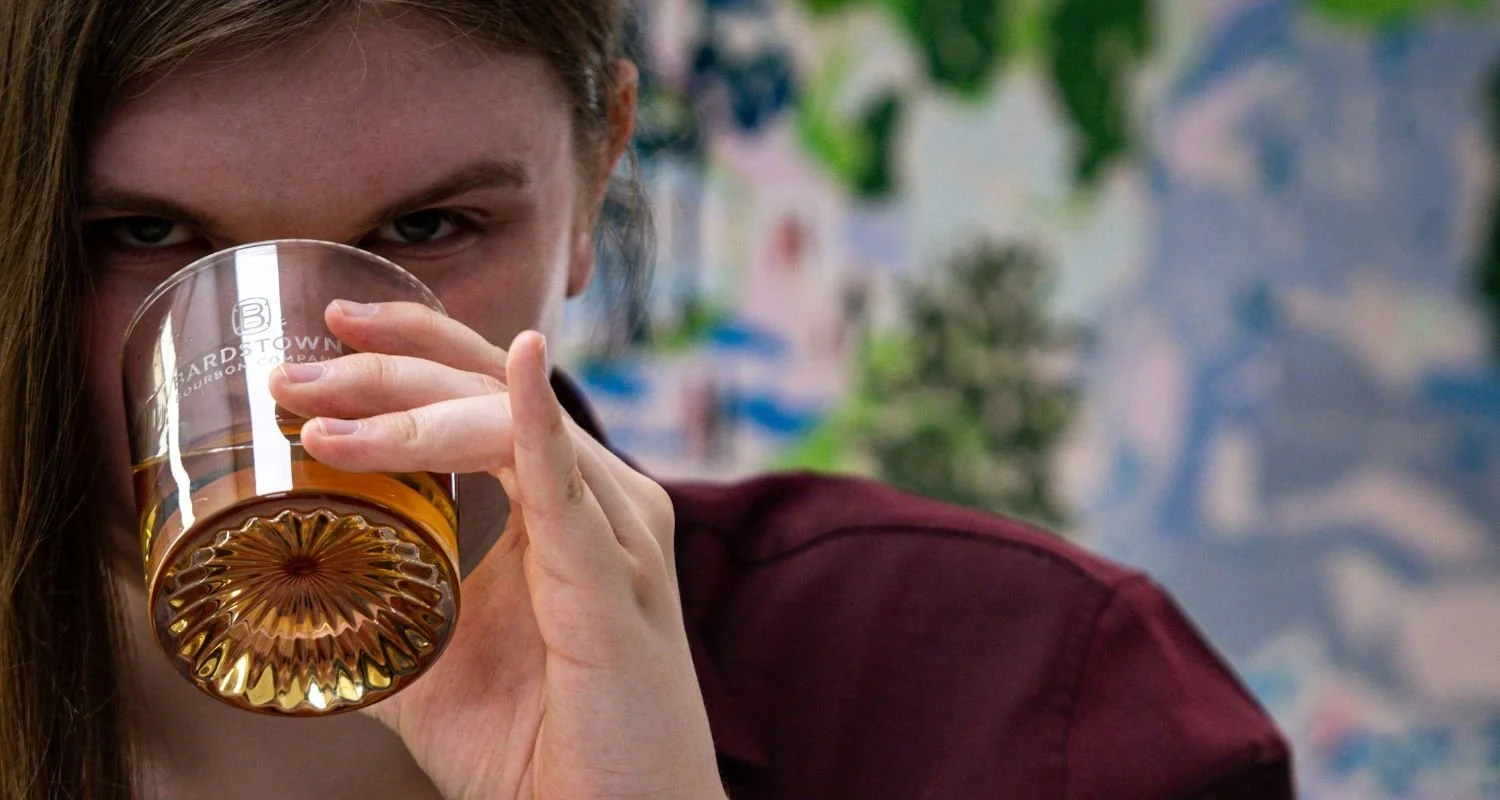Meet the mentee: Terricia Soyombo, Old Pulteney
When Terricia Soyombo joined the Atonia Programme, she had never worked in the whisky industry. Now, she’s the senior global brand manager for Old Pulteney. She explains how she turned her passion into her career, how she’s no stranger to breaking down barriers and why decisions need to be made with women+ in the room.
OurWhisky Foundation: Hi Terricia! Tell us a bit about yourself.
Terricia Soyombo: I’ve lived in Glasgow for the last six years. After living and working in Washington, DC, for 11 years, I fell in love with Glasgow and then rapidly altered my carefully laid life-long plans to move to London. I’m both a UK citizen and a first-generation American who grew up in Lafayette, Louisiana — picking up instruments, playing too many sports, loving literature and dancing more than I was still.
OWF: What has been your proudest achievement during the Atonia Programme?
TS: Landing my role as senior global brand manager of Old Pulteney a few weeks after graduation was definitely a defining moment! Talk about cause and effect — it wouldn’t have happened without the mentorship programme.
OWF: What does your role entail?
TS: I’m responsible for shaping the global brand strategy for Old Pulteney, overseeing the team on insights-driven projects from long-term positioning to product innovation and campaign development.
Old Pulteney has a big anniversary in 2026 and we’re focused on bringing to life meaningful stories that grow the brand while staying true to its 200-year heritage.
“A big part of drinking whisky neat originally was that I loved doing anything people said ‘ladies’ didn’t do.”
OWF: What were your thoughts on your future career when you were growing up?
TS: I was always convinced the world was so much more vast and interesting than the bit of it I had seen, so I studied International Affairs at university in DC.
I figured I’d be a foreign service officer or international aid development worker and spend most of my time in the field abroad. But life has a way of weaving webs you can’t even see until you walk face-first into them.
OWF: When did your love of whisky begin and why?
TS: I was a whisky drinker from the start, owing mostly to the fact that I found a lot of what my friends were drinking was far too sweet for me. And I’m lucky to have been raised by a staunchly feminist mom and dad, so a big part of drinking whisky neat originally was that I loved doing anything people said ‘ladies’ didn’t do.
I mostly drank Bourbon or Canadian whisky; I didn’t drink much Scottish whisky until 12 or so years ago, primarily because it was what my dad drank. Also, in the US then, much of what we had access to was expensive and marketed in a way that made it seem stuffy and inaccessible. I owe my conversion to a DC bartender, who had none of my go-to sipping Bourbons and suggested a few Scottish drams. I soon learned about peat, and I was a goner.
Turning passion to profession: Terricia Soyombo joined the whisky industry a few weeks after graduating from the Atonia Programme.
OWF: Why did you apply for the OurWhisky Foundation Atonia Programme?
TS: Before the mentorship programme, I wasn’t yet in the whisky industry. I knew from past work with some great global whisky brands as my clients that I wanted to align my professional brand strategy skills with my personal passion for whisky, but I wasn’t sure how to navigate another pivot 15 years into my professional career.
Two OWF graduates (Jesme Wales and Heather Robertson) reinvigorated my dormant dream by talking about their fantastic experiences and encouraging me to apply. I fully champion mentorship, both formal and informal, and have rarely gone long without being either a mentor or a mentee. Some of the best moments of introspection — and catalysts for change — in my career have been inspired by mentors kind enough to challenge me or what I believe.
OWF: What were the biggest challenges for you in progressing?
TS: As a passion I had truly embraced the whisky community, and have found such a rich sisterhood within it through The Pot Still Whisky Girls, my clients, and many other women I had met. Yet I knew all too well how often it didn’t treat women with the same level of credibility — we’re often faced with doubt of our whisky knowledge or scepticism over our genuine interest.
This only added to my belief that it was maybe too late for me to break into the industry, particularly after spending so many years honing my skills in other avenues.
OWF: How did you work with your mentor to overcome these?
TS: My mentor, Rod Gillies, played a pivotal role in helping me reframe my thinking. He didn’t just give advice, he asked the right questions. When I voiced the barriers I believed stood in my way, he pushed me to interrogate why I thought they should stop me. Was it really in-industry experience I lacked, or just the permission to see myself as someone who belonged? He helped me see that the skills I’d built outside of the category weren’t a detour, they were a foundation.
Building her community: Soyombo with friend Sarah McDonald, brand manager at Caorunn.
OWF: When was your first ‘a-ha!’ moment?
TS: Getting accepted to the mentorship programme! Even being in the ranks of the incredible women and non-binary individuals who were part of OurWhisky Foundation helped me remember I didn’t need to reinvent myself to belong in whisky — I already did.
OWF: What was your favourite part of the programme?
TS: The remarkably supportive cohort I was in was incredible — from the professional development sessions to the WhatsApp group that kept us connected and encouraged to face to face nights out. But having Rod as a mentor who advocated for me in industry rooms I wasn’t yet in made all the difference.
OWF: How has this experience rewired how you feel about being a woman in this industry?
TS: As a Black woman, I’m no stranger to breaking down barriers in other areas of my life. This programme has given me clarity and confidence in how my past experience and varied perspective helps me contribute meaningfully in my role — both for Old Pulteney and for the team I manage.
“As a Black woman, I’m no stranger to breaking down barriers in other areas of my life.”
OWF: How has this programme empowered you to empower others?
TS: It reinforced the power of mentorship done well, and how someone believing in your skills can open a door. I try to pay that forward by championing others and making spaces more inclusive for diverse perspectives.
OWF: What advice would you give someone applying for or starting the programme?
TS: Be honest about your struggles and your goals, even the ones that feel too ambitious to say out loud, because this programme is designed to help you stretch toward them. Stay open, show up, and trust that you belong in the room.
OWF: What are your hopes for the future for women working in whisky?
TS: I hope that the industry recognises that almost 40% of whisky drinkers are NOT men, and ensures that women and non-binary people won’t just take up space in the industry, but become recognised as absolutely essential to shaping its future.
To grow, it should be standard practice that decisions aren’t made without our perspectives in the room.






